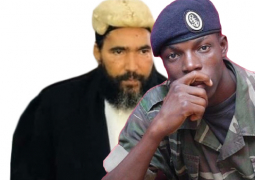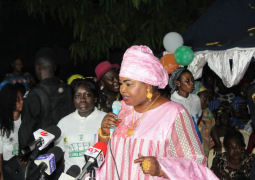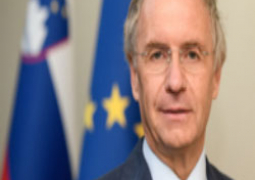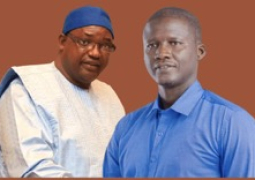
The historic trial before the High Court of The Gambia in Banjul involves: Lance Corporal Sanna Fadera, Sergeant Gibril Darboe, Corporal Ebrima Sannoh and Corporal Omar Njie, all of the Gambia Armed Forces, as well as Sub-inspector Fabakary Jawara of the Gambia Police Force.
They are being tried for treason, concealment of treason and incitement to mutiny as prosecutors alleged that they were planning to topple President Adama Barrow and his administration.
Beginning his testimony, the assistant police superintendent said he recognised all the accused persons. “Something transpired between me, the first accused Sanna Fadera, third accused Ebrima Sannoh and fifth accused Fabakary Jawara,” he said.
He narrated before the court that he recognised Sanna Fadera, Ebrima Sannoh, Gibril Darboe and Omar Njie through their interaction at the State Intelligence Services (SIS), where he interacted with them as a member of the investigation team. For Fabakary Jawara, he said he knows him as a colleague police officer and also interacted with him as a member of the investigation team.
“For the first accused, I was tasked to take his statement after a joint interrogation before the panel. The same interactions with the third and fifth accused. I was tasked to take their statements.”
He added that after the joint interrogation, he went with the first accused Sanna Fadera and informed him in English that he was about to write his statement. “In that I read the cautionary words to him. I told him that he needed not to say anything unless he wished to, and that anything he said would be taken down in writing,” he told the court.
“He then opted to write his own statement, fill his personal details and write my name as the person who cautioned him. He went further to write his own voluntary statement. At the end of this, he signed and it was endorsed by an independent witness,” Mr Darboe relayed, furthering that the accused person was later charged with three counts, all of which he denied.
The witness narrated going through the same routine with Ebrima Sannoh, Gibril Darboe, Omar Njie, who all denied the charges levelled against them.
“[However], Fabakary Jawara's statement was recorded by the Police Anti Crime Unit after his appearance at the SIS headquarters. At the Anti Crime Unit, I informed him that I was about to write his cautionary statement,” he narrated.
“Speaking in English, I read the cautionary wordings to him,” the witness said. “He opted to write his own statement. He filled in his personal details and wrote my name as the person who wrote the cautionary wordings to him. He signed and went further to write his statement voluntarily without any duress. At the end of which, he signed.”
It is the testimony of the witness that Fabakary was charged with one count of concealment of treason, which he also denied.
The police investigator said that because of the unavailability of an independent witness that night – an independent witness was available on Tuesday at the Anti-crime Unit, where “Fabakarry read his cautionary statement at the presence of the independent witness and the voluntary statement was also read before the independent witness. Both statements were signed and endorsed by the independent witness.”
Asked by AM Yusuf at this point as to whether he would be able to identify the statements, he said he would be able to identify them through his name, which was written on them as the one who administered them, and his signature.
Documents were placed before the witness, who identified them as the statements of Sanna Fadera and Ebrima Sannoh and Fabakary Jawara.
The statements of Sanna Fadera and Ebrima Sannoh were admitted into evidence without any objection from the other party. However, the defence objected to the admission of Fabakary Jawara’s statement as evidence, arguing it contradicts section 31 sub-section 2 of the country’s Evidence Act.
Defence Counsel L.S. Camara also alleged that the statement were written under duress and not voluntary as per what he was told by his client Fabakary Jawara.





